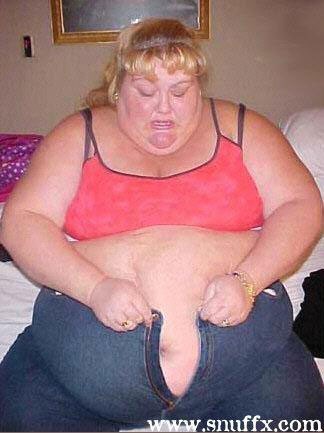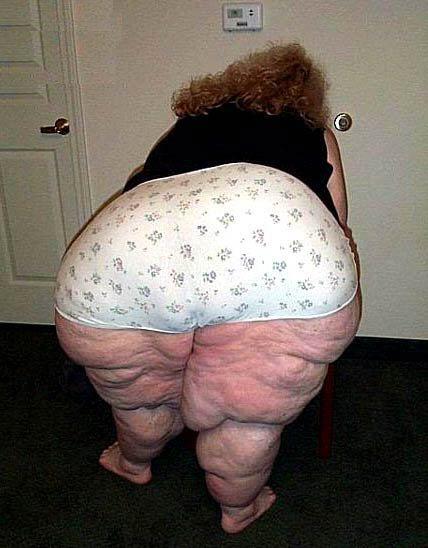My heart started pounding. I was prepared to be in the 'overweight' bracket, even fairly high up in it, but this felt like something else altogether. I had stopped being a person and become a Public Health Concern.
A day or two later I realised that the weight I had entered was wrong, and upon weighing myself (I bought a fancy set of bathroom scales, so jolted was I by the BMI's judgement) I found I was actually slightly below the threshold of obesity. Phew! But why should this be a big deal? How does it make sense that I'm allowed to feel okay-ish about myself at 11 stone 9.5 lb (163.5lb), the upper limit of 'overweight' for my height, but not at 11 stone 10 (164lb), the lower limit of 'obese'?
Pretty much everyone knows by now that BMI is an unreliable way of measuring individual health (though, more on this later). What is perhaps less fully realised is that its categorisation of normal/overweight/obese often does not match up at all with our culturally-ingrained standards of those categories. Kate Harding's Illustrated BMI project is a great way of showing this. I recommend browsing through the whole thing, but photos like this one, of a BMI-overweight woman, are where it makes its point most profoundly:
Similarly, when we think of what obesity looks like, we have a pretty specific mental image. Here are some of the top Google Image results for the word 'obese':




...and here's me.

Most people are bound to think that because I don't look like the women in the four pictures above, I can't be obese. But the BMI is used to define those categories. The meaning of obese, strictly speaking - and don't forget, this is the meaning that's used in the media - is the meaning that the BMI gives it. And according to that meaning, I am a mere few pounds of weight away from being part of the Obesity Crisis.
So, I'm asking myself, what is it about this word 'obese' that has us all running scared? Obviously, our visual association of what it looks like to be obese is wrong: not all obese people look like those women. But there's also the other side of the equation - when you hit obesity, you are alleged to be an automatic health risk, more likely to suffer from heart disease, diabetes and even cancer. And this is, perhaps, where the BMI is at its most troublesome.
Now, I'm no model of perfect health. I try to eat healthily but I do indulge on occasion, and while I go to the gym a couple of times a week I also sometimes choose to drive when I could cycle. On the whole, however, I'd say I live a healthy lifestyle, probably healthier than average. If you're under 25 or so, you probably know at least a few people who find that they can eat junk food regularly, do almost zero exercise, and retain a slim figure, which is upheld as 'normal' (read: healthy) by the BMI. I suspect that those people may be equally at risk from a health perspective as me; possibly even more so. This is supported by research that shows that thin people can have very high levels of visceral fat surrounding their organs, which makes them prime candidates for the health risks associated with obesity. (http://www.msnbc.msn.com/id/18594089/)
This all brings me on to my main point. While there is a correlation between size and health, the two obviously do not walk hand in hand. Yet overweight and obese people are singled out by health professionals and the media as needing to change their lifestyle, regardless of what lifestyle they actually live, and normal-weight people are designated as healthy, regardless of their actual health. The fact that weight is associated so closely with lifestyle choices, and thus with health, is the source of the persecution that overweight people face daily, and it's simply misguided.
Weight is seen as something chosen or controllable: it is acceptable to bully and abuse overweight people, so the story goes, because they made themselves that way. This is not true. I could lose a lot of weight if I starved myself and spent hours every day working out. To say that by choosing not to do that I choose to be overweight is absurd: it's like saying that the thin person who eats junk food every day and rarely leaves the sofa is choosing to be thin.
In conclusion: obesity does not mean whale-like. Obesity does not mean sudden risk of death. In fact, it doesn't seem to mean anything meaningful at all, which leaves me wondering why we consider it a useful label. I have to wonder whether we keep it around simply as a scare tactic: by building up all these deeply negative associations around it (people who are too fat to get out of bed! heart attacks!), we make sure that people who cross the line into obesity know that their bodies are not socially accepted. Of course, they usually know this already, thanks to those helpful, health-conscious co-citizens who find it appropriate to hurl abuse at them and treat them as less than human.


No comments:
Post a Comment